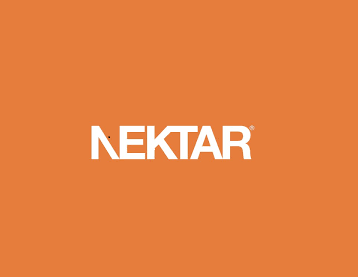IBT key beneficiary of massive BMS-Nektar deal – International Biotech Trust (IBT) looks set to be the main investment trust beneficiary of the massive deal signed today between Bristol-Myers Squibb (BMS) and Nektar Therapeutics covering what had hitherto been – albeit briefly – the industry’s hottest un-partnered cancer drug, NKTR-214. Nektar is the third largest shareholding for IBT, accounting for 4% of its NAV; it was a significant over-weight position and high-conviction idea for the fund.
The licensing deal will see BMS pay Nektar $1.85bn upfront – $1bn in cash up-front and $850m to acquire shares at a ~25% premium – which is reported to be the largest sum ever paid in a such a deal. Moreover, in exchange, BMS will “only” obtain a 35% economic interest in NKTR-214, which will be studied in pivotal trials as a combination therapy with its own checkpoint inhibitors Opdivo and Yervoy for a range of cancer indications. Ownership of NKTR-214 effectively remains with Nektar, which will continue to explore combinations with competitor’s products – notably Merck & Co’s Keytruda and Roche’s Tecentriq – subject to certain conditions. However, the immediate stockmarket reaction to the deal was somewhat counter-intuitive. As it puts paid to recent speculation that Nektar might be acquired, the company’s shares initially fell by 3%, although they closed up by 11.5% on the day.
The trust’s investment in Nektar stock will nevertheless have played out well and highlights its investment approach. Nektar shares have trebled since November last year and are up by ~30% in the year-to-date period, in contrast to the declines seen for most larger cap US biotechs. IBT is also the only one of the 13 biotech specialist closed end funds monitored by Marten & Co to have a Nektar holding within its top 10.
SV Health-managed IBT tends to hold some of the Nasdaq Biotech Index (NBI) constituents, but at the same time chooses to exclude others. Currently, it holds five of the top 10 constituents of the NBI: Biogen, Celgene, Regeneron, Vertex and Gilead, although all are in fact below their proportional weightings, and at the same time has little or no exposure to the remaining five, including Amgen, Alexion and Incyte.
This approach is interesting as it represents a paired trade of Nektar vs Incyte. Incyte’s IDO inhibitor epacadostat was, prior to NKTR-214’s recent emergence, considered the hottest un-partnered immuno-oncology asset and Incyte’s stock has fallen by 30% at the same time as Nektar’s meteoric rise. Incyte nevertheless has what is considered the largest binary clinical trial outcome this year in the form of the outcome of the Echo-301 trial of Keytruda and epacadostat in melanoma.
In addition to Nektar, three other stocks – Exelixis, Acadia and Adamas – have significantly overweight positions and are within the trust’s top 10. IBT currently has 66 public company and 26 private company holdings with a top 10 accounting for 41% of NAV. Its portfolio is more diverse than its two nearest peers, Biotech Growth Trust (BIOG) and Swiss-listed BB Biotech, which have a top 10 accounting for ~66% of their respective NAVs. Some 92% of IBT is invested in US stocks, with 8% in Europe, and it also has a 90/10 split of public and private companies, the latter now largely via venture funds managed by SV Health. The only European company holding within the top 10 is Genmab. The trust has an almost equal split between large cap (>$10bn market cap), mid-cap ($1-10bn) and small cap (<$1bn) stocks. It has exposure to a diverse array of therapeutics areas, with oncology the largest at 33% of NAV, followed by rare disease (14%) and CNS (11%).
The trust is ungeared and benchmarked to the Nasdaq biotechnology index. It also has almost no sterling-denominated investments and thus is heavily exposed to the US dollar and does not hedge currency risk. The discount to NAV has closed in recent years from around ~10% historically and, even with the recent market volatility, is currently tight at just 0.8%.
Two of IBT’s top 10 holdings, Celgene and Gilead Sciences, provide exposure to the so-called chimeric antigen receptor T- Cell (CAR-T) immunotherapy space, again one of the most exciting in fields in biotech. Gilead leads this field, having acquired Kite Pharma last year, while Celgene has just boosted its position to third place, as a result of the deal announced last month to acquire Juno Therapeutics. The table below shows IBT’s top 10 holdings, as of the end of December, with the percentage change in share price in local currency (all US dollars except for Genmab, which is listed in Denmark).
| IBT top 10 holdings 31/12/17 | % portfolio | % change YTD |
| Biogen | 6.5 | -4.7% |
| Celgene | 6.3 | -13.1% |
| Regeneron | 4.8 | -11.1% |
| Nektar | 4.0 | 33.2% |
| Exelixis | 3.9 | -5.4% |
| Vertex | 3.6 | -2.2% |
| Adamas | 3.4 | -6.1% |
| Genmab | 3.0 | 0.3% |
| Gilead Sciences | 2.8 | 8.5% |
| Top 10 | 38.3 | -5.9% |
IBT key beneficiary of massive BMS-Nektar deal
